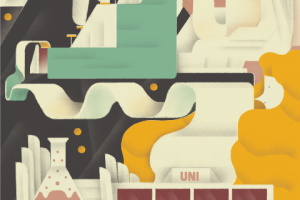Rise in Defense Spending Means Smaller Increase for Science in New U.S. Budget
Science
 American and Russian officials always insist that their smallpox repositories, under WHO oversight, are well guarded. But experience tells us that scientists working in laboratories with the highest biosafety standards are still caught off guard by technical breakdowns, that their staffs make mistakes and break rules, and that a predictable institutional reflex is to cover up blunders.
American and Russian officials always insist that their smallpox repositories, under WHO oversight, are well guarded. But experience tells us that scientists working in laboratories with the highest biosafety standards are still caught off guard by technical breakdowns, that their staffs make mistakes and break rules, and that a predictable institutional reflex is to cover up blunders.
 Not only do patents push higher prices onto consumers, they burden the research world with the increased costs of paying for the intellectual property needed to do further research . . . If anything, the neoliberal approach to academic research is a return to the privately funded, pre-tenure origins of the university system when numerous schools were simply research labs and promotional arms for private industry
Not only do patents push higher prices onto consumers, they burden the research world with the increased costs of paying for the intellectual property needed to do further research . . . If anything, the neoliberal approach to academic research is a return to the privately funded, pre-tenure origins of the university system when numerous schools were simply research labs and promotional arms for private industry
Spread the word